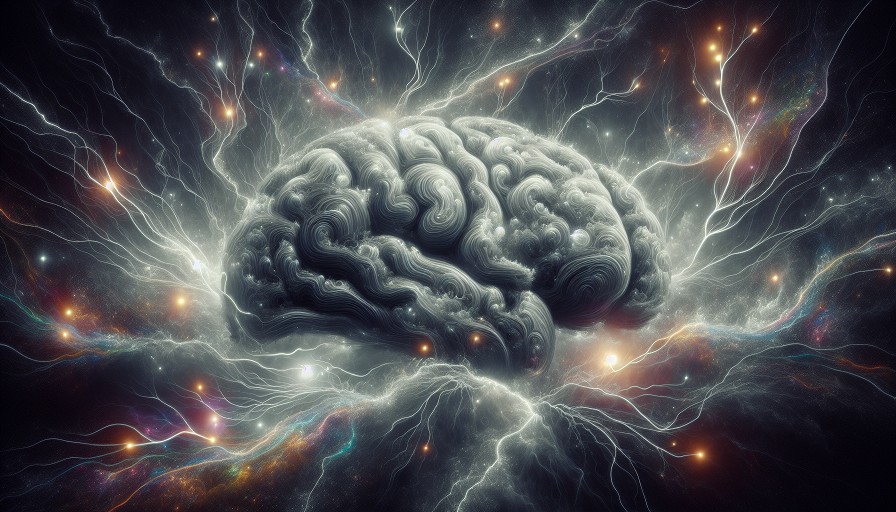
You open a drawer and catch a faint whiff of pencil shavings. Suddenly, you’re sitting in math class again—number two pencil in hand, scratch paper on the desk, the low hum of fluorescent lights overhead. The memory is vivid, almost cinematic. But nothing around you changed—except the smell.
This kind of time-traveling experience is known as an olfactory flashback, and it happens because of the unique way your brain processes scent. Unlike sights and sounds, which take more scenic routes through the brain, smells go straight to the emotional and memory centers. It’s why a simple aroma can unlock moments from years—or even decades—ago, often in full color.
Contents
Why Smell Hits Harder Than Other Senses
The five senses all gather information, but the brain doesn’t treat them equally. Vision and hearing pass through complex relay systems. Smell, on the other hand, takes a direct route. When scent molecules enter your nose, they trigger receptors that send signals directly to the olfactory bulb, which sits just above the nasal cavity and is part of your brain.
Olfactory Bulb: The Memory Shortcut
The olfactory bulb has direct connections to two critical areas:
- The amygdala: Processes emotion
- The hippocampus: Handles long-term memory
This pathway bypasses the thalamus (the usual sensory relay station), meaning that smells are processed faster—and more intimately—than other inputs.
The result? A smell can evoke a memory not just visually, but emotionally. You don’t just remember your math class—you feel the anxiety of pop quizzes, the smell of erasers, the clack of rulers. It’s a full-bodied recall.
What Is an Olfactory Flashback?
An olfactory flashback is a sudden, involuntary memory triggered by a smell. These memories are often:
- Autobiographical: Deeply personal and tied to your life story
- Emotional: Loaded with feeling, either comforting or unsettling
- Vivid: Recalled with unusual sensory detail
These flashbacks are so common that scent is used in therapy, advertising, and even virtual reality to evoke specific emotional responses.
Why School Memories Stick
Childhood and adolescence are periods of intense neurological development—and sensory sensitivity. Many people’s most powerful olfactory memories trace back to school years because:
- They involved routine (same pencil smell, same desk, same books)
- They were emotionally charged (tests, friendships, successes, and failures)
- They occurred during a time of high neuroplasticity
The smell of a freshly sharpened pencil or a crayon box isn’t just nostalgic—it’s neurologically embedded.
The Pencil as a Time Machine
Graphite, cedarwood, eraser rubber, paper—all of these materials contribute to the classic “pencil smell.” When inhaled together, they become a kind of olfactory signature for school environments. The brain encodes these smells alongside context: math class, doodling, struggling with long division.
Years later, when you smell something similar, the brain doesn’t just recall—it replays.
Why Smell-Evoked Memories Feel Stronger
Researchers have found that odor-evoked memories are more emotionally potent and detailed than those triggered by images or words. This effect is sometimes referred to as the “Proust phenomenon,” after the author Marcel Proust, who famously described memories unleashed by the smell of a madeleine.
Brain Imaging Studies
Functional MRI studies show that when people recall memories triggered by smell, the amygdala and hippocampus light up more intensely than with visual or verbal cues. These areas encode emotional memory—suggesting that olfactory cues bypass rational filters and hit the heart of experience.
The Role of Personal History
Scent associations are deeply subjective. One person might associate pencil shavings with dread (algebra), while another might feel a warm wave of nostalgia (coloring outside the lines in art class). These personal connections create a private “scent-memory map” in your brain.
Smells Without Words
Unlike visual memories, which we can describe easily, olfactory memories often defy language. You know the smell. You recognize it instantly. But you struggle to describe it. That’s because the olfactory cortex isn’t tightly connected to language centers—so what you feel may be clearer than what you can say.
Practical Uses of Scent-Based Memory
Beyond nostalgia, understanding scent’s power over memory has real-world applications:
- Therapy: Scent cues can be used in trauma work to recall suppressed memories—or to create calming routines
- Studying: Using the same scent while learning and testing can enhance recall (thanks to context-dependent memory)
- Marketing: Retailers use signature scents to evoke feelings of comfort, desire, or trust
Scent as a Study Tool
Try this: choose a distinct, subtle scent (like peppermint) and use it during study sessions. Then expose yourself to that same scent during an exam. Studies show this sensory overlap may improve memory retrieval.
Can Nootropics Enhance Olfactory Memory?
While nootropics can’t amplify scent itself, some may support the brain regions involved in memory formation, recall, and emotional regulation—enhancing your brain’s ability to process and retrieve memories, including those triggered by scent.
Nootropics That May Help
- Lion’s Mane Mushroom: Supports neurogenesis and memory clarity, potentially strengthening sensory-linked recall
- Bacopa Monnieri: Traditionally used for memory enhancement, especially in emotionally charged contexts
- Citicoline: Supports cognitive energy and memory precision
- L-Theanine: Calms mental noise, potentially making scent-based memories easier to access without distraction
Used alongside scent-based recall techniques, these nootropics may help you harness the power of olfactory memory more intentionally.
The scent of pencils isn’t just a smell—it’s a key. A quiet unlock to moments stored deep in the folds of your brain. While you can’t always choose what memories rise up with a smell, you can appreciate the strange, powerful bond between nose and neuron. It’s not a glitch. It’s not weird. It’s your brain doing what it does best—remembering in the most human way possible.
So the next time a random scent pulls you back in time, don’t rush past it. Pause, breathe in, and let it take you. Your hippocampus has something to show you.

